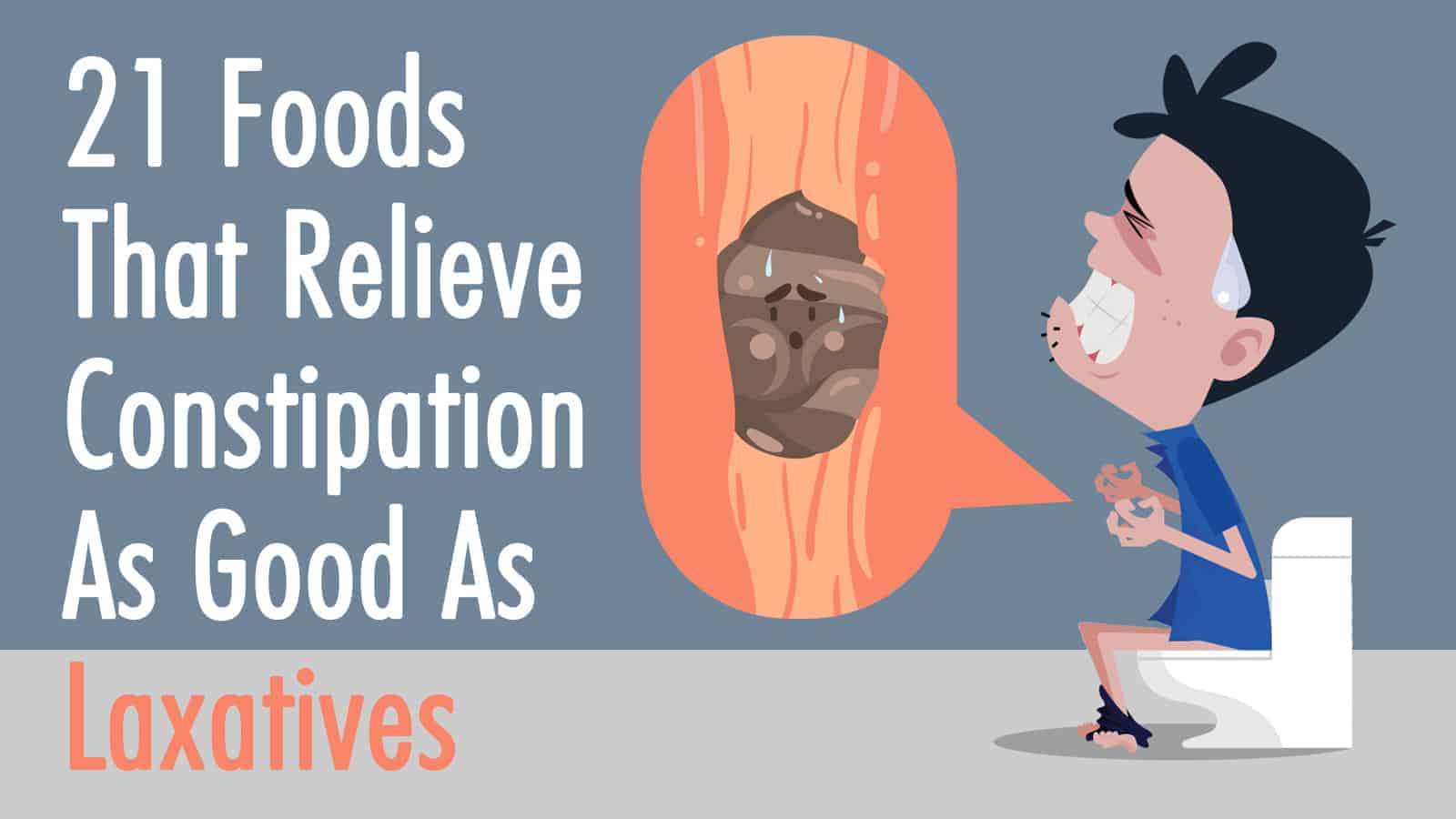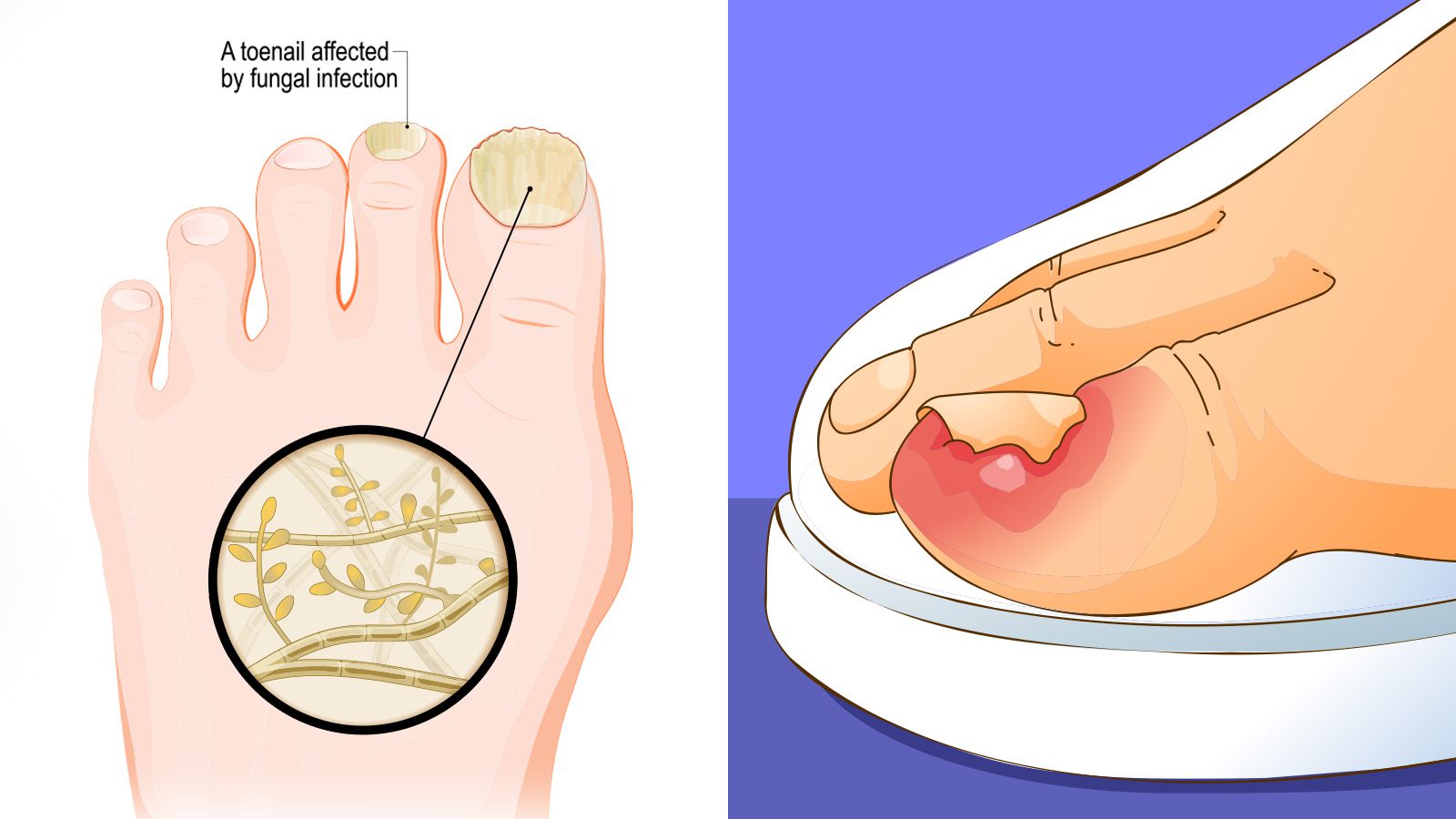Constipation is thought of as a normal condition that most people suffer from at some point in their lives. It may happen as a result of a poor diet, dehydration, or even something as simple as a change in your daily routine. Other reasons could be to blame as well, such as medical conditions, illnesses, and aging.
While it may seem like just an inconvenience, it can lead to other complications. For this reason, and just for your own comfort, it is important to find a way to get relief from this problem. It can be uncomfortable and even downright painful.
Laxatives are a popular method, but there are more natural ways that you can try before turning to over-the-counter medications. There are many foods that may help relieve constipation just as well as laxatives do. It is also important to note that there are certain foods that should be completely avoided while you are trying to deal with the problem.
Foods That Relieve Constipation
1. Prunes
Prunes contain a high amount of fiber, and just three prunes can give you the daily recommended amount. Containing a fiber called cellulose, prunes add more water to the stool and increase the bulk, allowing for relief from constipation.
2. Water
By not consuming enough water, you can become dehydrated. This can cause difficulty in having a bowel movement. By drinking water or consuming it through foods that you eat, you may be able to find relief.
3. Flax seeds
Containing high amounts of both soluble and insoluble, flax seeds help add bulk and water to the stool, while also making the time in the intestine shorter.
4. Chia seeds
Chia seeds turn into a gel when they are combined with water. The gel makes stool soft, which helps with constipation. Chia seeds absorb so much water that it adds bulk to the stool.
5. Sweet Potatoes
Making up about 15 percent of the recommended daily intake of fiber, sweet potatoes can help relieve constipation. The fiber in sweet potatoes has lignin and cellulose, both insoluble fibers that add bulk to the stool. They also have pectin, a soluble fiber, which adds water to the stool.
6. Rhubarb
Rhubarb contains a compound that aids in lowering the levels of Aquaporin 3. When these levels are lowered, less water is moved to the bloodstream, allowing more of it to go into the stool. This makes the stool move through the intestines easier and it softens the stool. Rhubarb also contains fiber.
7. Artichoke
Artichoke is beneficial to gut health and regulation. It contains prebiotics which makes the consistency of the stool easier to pass, and it increases the frequency of stools.
8. Citrus fruit
Citrus fruits contain a large amount of fiber and soluble fiber. The soluble fiber is higher in the fruit peel, but the actual fruit contains some as well. Oranges have about 13 percent of the daily recommended intake, while grapefruit has about 10 percent.
By consuming citrus fruits, it will take less time for the stool to come through the colon.
9. Green vegetables
Spinach, broccoli, and Brussel sprouts contain a high amount of fiber, folate, vitamin K, and vitamin C. Together, these nutrients and vitamins add bulk to the stool. This makes it easier to pass through the intestines.
One cup of spinach contains about 17 percent of the daily recommended value, ten Brussel sprouts contain about 20 percent, and one stalk of broccoli contains about 16 percent.
10. Figs
Figs encourage healthy bowel movements and increase the amount of fiber that is absorbed by the body. By eating figs, your stool will have added bulk and spend less time moving through the intestines.
One cup of figs is nearly 60 percent of the recommended daily intake for fiber.
11. Pineapple
Pineapple is high in fiber, and it can be added to most any meal. The fiber can help move things along in the intestines, improving digestive health. Even just drinking the juice from a pineapple can be beneficial, and the juice contains plant enzymes that further aid in digestion.
12. Coffee
Coffee can aid in digestion because it is a natural diuretic. This can normally get your bowel movement moving through the intestines, quickly allowing relief.
You do have to be careful, however, because the things you add to your coffee can actually make the problem worse. The dairy products such as creamer or milk should be used in moderation or not at all when digestion seems to be an issue.
13. Beans, lentils, and peas
Beans are affordable and high in fiber, making them a desirable food to use to relieve constipation. One cup of cooked beans has around 80 percent of the recommended daily amount of fiber.
Lentils and peas have the same effect on the body because they are nearly just as high in fiber content.
14. Apples
One apple, unpeeled, has about 17 percent of the daily recommended amount of fiber. Without the peel, the percentage is much less. The pectin in the apple is used by the digestive system to get more water into the colon. Doing so makes the stool softer and shortens the time it takes to get through the intestines.
15. Pears
Pears are high in fiber, sorbitol, and fructose. Fructose doesn’t absorb very well so when it makes it’s way to your colon, it attracts water and causes movement in the bowel. Sorbitol works to relieve constipation in the same way as the fructose.
Pears contain around 22 percent of the recommended daily amount of fiber. All of these aspects together can make it act as a gentle laxative.
16. Kiwi
Kiwi is high in fiber, containing about 9 percent of the recommended daily amount in one piece of fruit. Eating kiwi can make the stool softer and add bulk, making it easier to move through the intestines. The consumption of kiwi has also been proven to increase the time the stool takes to get through the intestines.
17. Anything made with whole wheat
Pasta, bread, and rice made from whole wheat contain insoluble fiber, so bulk is added to your stool. This helps it pass through the intestines without a problem, and can help when you’re having bowel issues.
18. Berries
Berries such as raspberries and blackberries are known to help with the problem because their water content is high, as well as the fiber content. They also have high amounts of vitamin C and calcium.
19. Greek yogurt
Yogurt contains probiotics that help with constipation and overall gut health. Plain Greek yogurt contains less sugar than ones with added sugars, so you can take it a step further and choose the healthier option.
20. Carrots
It is common knowledge that carrots are beneficial to your eyesight, but it is not as well known that carrots offer other benefits, too. Carrots are full of soluble fiber and aid the body in removing cholesterol from the body. This is done through the stool, which helps with bowel movements and moving stool through the intestines much more quickly.
21. Peaches
Peaches have a high fiber content, making them ideal for healthy digestion. One medium sized peach contains about 10 percent of the recommended daily amount of fiber. They can be added to any meal, as a side or mixed with other food, and can be incredibly beneficial when dealing with constipation.
Things That Make Constipation Worse
While trying to relieve constipation, there are certain foods and food groups that you should avoid completely. These foods can make the problem worse, causing serious problems and pain.
Foods to Avoid
- Dairy
- Carbonated drinks
- Unripe bananas
- Swallowing chewing gum
- Red meat
- White bread
- Alcohol
- Chocolate
- Fast food
- Processed foods
- Potato chips
What Happens if Constipation Goes Untreated?
If left untreated, the inability to have a bowel movement may cause more serious complications. These complications include:
- Hemorrhoids
- Prolapse
- Bowel obstruction
- Damaged colon – which can lead to colon cancer
- Roundworms
- Tapeworms
- Diverticulitis
- Death
Final Thoughts on Foods That Relive Constipation
Constipation may seem like just a minor inconvenience, but it is important to attempt to relieve the problem. It can cause pain, discomfort, and other more serious complications if it is left untreated.
Instead of using over-the-counter laxatives for relief, however, you could try an all-natural approach first. There are many foods that are high in fiber and other nutrients that encourage healthy bowel movements. These foods may even make the stool softer, bulkier, and help move it through the intestines more quickly.
https://www.youtube.com/watch?v=yG-G9_LOkLA















